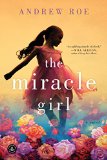Summary | Excerpt | Reading Guide | Reviews | Beyond the book | Read-Alikes | Genres & Themes | Author Bio

It is, arguably, one of the most divisive issues of our time: the role of religion in society. Especially these days, with the boundaries between religion and politics becoming ever more porous, the battle lines have been drawn even more clearly. In The Explanation for Everything Lauren Grodstein tackles this issue with empathy and grace leading the reader to question pre-established assumptions about what the "other side" truly believes.
Biology professor Andrew Waite is having a terrible, horrible, no good, very bad year. His tenure at a small New Jersey liberal arts college seems only a remote possibility. His lab mice are not yielding the results he would like. His preteen daughters are growing up way too fast. And more than three years after her death, he still misses his wife, Louisa, terribly. Years ago, Waite, a native Midwesterner, received a schooling in more ways than one from Hank Rosenblum, a renowned professor of evolutionary biology at Princeton. Under Rosenblum's mentorship, Waite fell in step with the elder's personal beliefs - and became an atheist.
At Exton Reed, the college where he now works, Waite teaches a course every third semester that is nicknamed "There is No God." So when Melissa Potter, a transfer student from a community college, pleads with Waite to take her on as an independent study candidate, he is taken aback. Melissa is set to prove that it is intelligent design, not Darwin's theory of evolution that is the "explanation for everything." Waite balks at first but Melissa wears him down and soon the two are caught in a game of proving the other person "wrong."
Grodstein, a teacher of creative writing, knows how to weave multiple plot lines seamlessly while maintaining a taut pace. She does so extremely well here - switching back and forth between the present, where Waite is teaching at Exton Reed, and the past, which covers Waite's relationships with Professor Rosenblum and Louisa. In addition to the main players, parallel tracks follow, among others, a tentative relationship between Waite and his neighbor, and Louisa's tragic death and its related circumstances.
Grodstein has a particular talent for portraying weak, marginally flawed men. In her previous novel, the brilliant A Friend of the Family, she created an everyman, Pete Dizinoff, a father whose relentless interference in his teen son's life spirals quickly out of control. Andrew Waite seems to be crafted from a similar mold. Caught in the fog of grief, desperately trying to keep the pieces of his life together, he clutches at straws that will give him the emotional crutch he so desperately needs. Melissa is, shall we say, a godsend. Soon, much to her delight, Waite finds himself making room for faith in his life.
An atheist herself, Grodstein needs to be lauded for taking on such a loaded topic. She has that most generous gift every writer needs: empathy. Yet sometimes in her eagerness to do right by everyone, the book is too earnest, too indecisive, not willing enough to take sides. Grodstein aims to level the playing field, giving them equal airtime - which is a good thing - however, we want a good fight that we ultimately don't get. Also, her portrayal of the players is too close to stereotype. There's the hot-headed atheist, Professor Hank Rosenblum, who relentlessly pokes fun at the Fox-news watching evangelist believers. For her part, Melissa Potter practically reads like a Botticelli angel - sweet chubbiness and all. Melissa's pastor looks like "a Republican" and a Christian college kid who believes in the word of God (and who takes Andy's "Is There God" course twice), even wears a sweater vest. Rick Santorum, anyone?
Despite these drawbacks though, Explanation succeeds in showing how important faith is in holding together the lives of millions. Whether you "believe" or not, it's hard to dismiss its role as the glue that binds many together. In one particularly compelling and utterly believable scene, Grodstein shows how Louisa, Andrew's dead wife, was once drawn to take their baby daughter to church for a quick visit.
At the end of this novel, whatever views you hold about religion, thanks to Grodstein, you begin, at least, to pay attention to the other side; you begin to understand their motivations. After all, agreeing with one viewpoint is secondary to understanding all of them. Explanation might not change any minds but this brisk story will remind you that when it comes to religion, it is, well, complicated.
![]() This review was originally published in The BookBrowse Review in September 2013, and has been updated for the
June 2014 edition.
Click here to go to this issue.
This review was originally published in The BookBrowse Review in September 2013, and has been updated for the
June 2014 edition.
Click here to go to this issue.

If you liked The Explanation for Everything, try these:

by Roland Merullo
Published 2018
Roland Merullo's playful, eloquent, and life-affirming novel finds the Pope and the Dalai Lama teaming up for an unsanctioned road trip through the Italian countryside to rediscover the everyday joys of life that can seem, even for the two holiest men in the world, unattainable.

by Andrew Roe
Published 2016
A multi-faceted, multi-voiced debut novel that is a personal and heartfelt-chronicling of a family in flux, trying to find their individual and collective way-and also tells a larger, cultural story.
Never doubt that a small group of thoughtful, committed people can change the world...
Click Here to find out who said this, as well as discovering other famous literary quotes!
Your guide toexceptional books
BookBrowse seeks out and recommends the best in contemporary fiction and nonfiction—books that not only engage and entertain but also deepen our understanding of ourselves and the world around us.